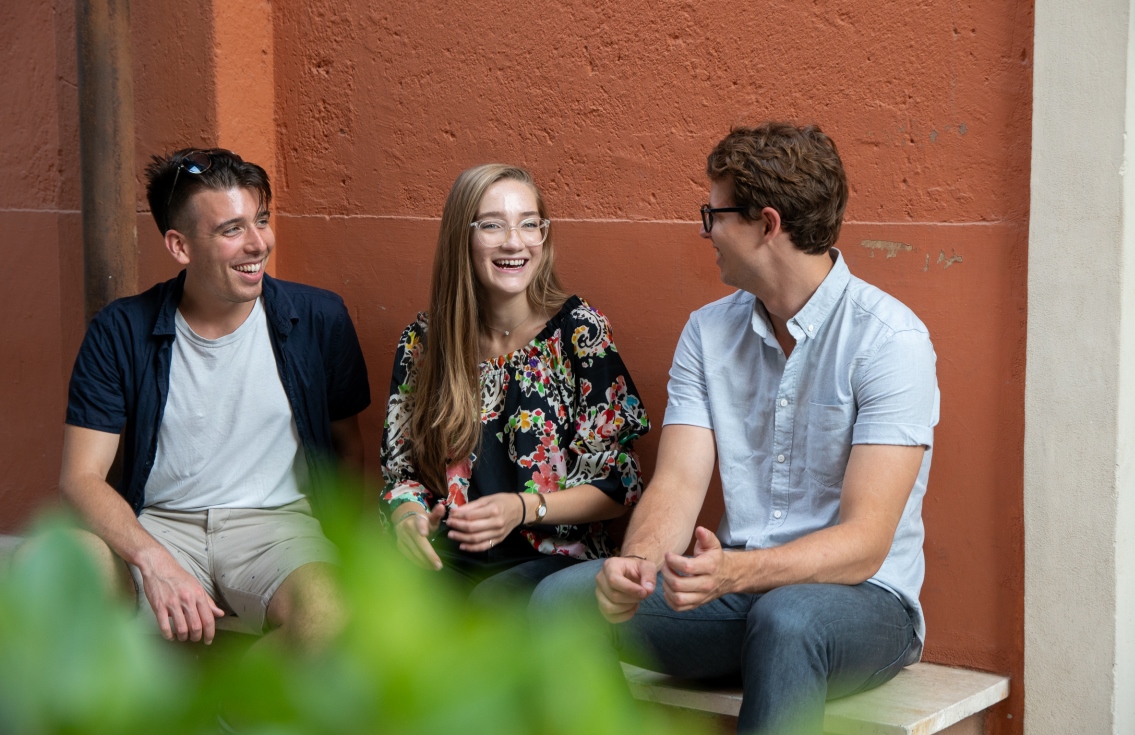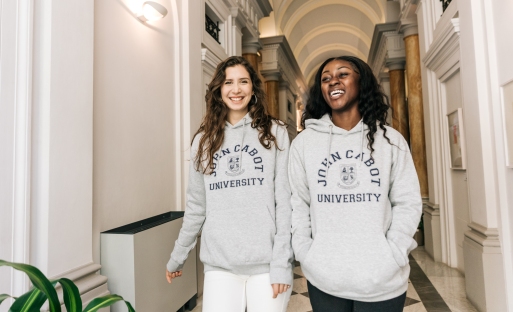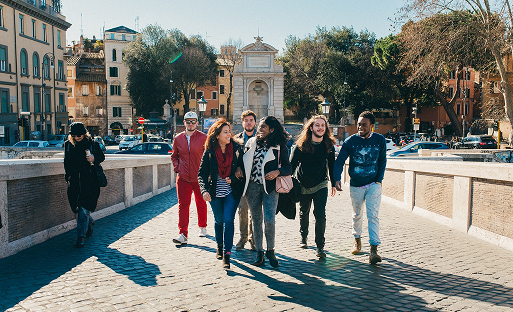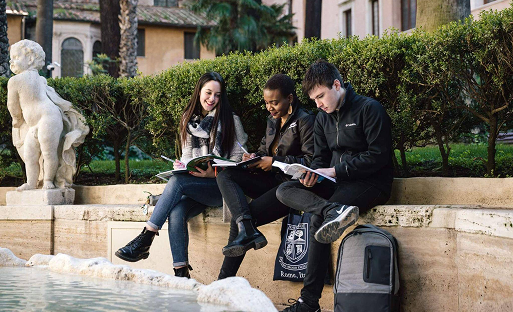
Welcome to the John Cabot University Office of Health and Wellbeing. Your health and well-being are our top priority. Discover the support and resources you need for a healthy school-life balance while studying in Rome.
At JCU, we understand that studying in a new environment can be both exciting and a bit overwhelming. From counseling and mental health services to our on-campus doctor, we offer a wealth of resources to support your academic and personal journey.
Our goal to keep you happy, safe, and healthy during your time at JCU. If you require continued medical treatment during your stay in Rome, please notify us ahead of time so we may better assist you.

Feeling sick? At JCU, we are dedicated to supporting the wellness of our students, staff, and faculty. Our comprehensive medical services include access to an on-campus doctor for routine care and consultations, as well as a 24/7 on-call medical advisor to ensure support is always available when you need it most.
With some exceptions, all non-Italian JCU students living in Italy are required to enroll in the JCU Health Insurance Plan. Learn more about the plan.

Whether you're facing mental health challenges or need support adjusting to life away from home, we are here to help you find your balance at school. Mental health services are included in your tuition. Schedule an appointment today.

Your safety is our highest priority. At JCU, we strive to help you feel secure at all times. Our emergency contact services are available to you around the clock.

JCU condemns any form of discrimination and harassment on campus. We are dedicated to fostering a supportive environment where every student can thrive and be themselves. If you find yourself in need of help, we promote a wide range of resources that are available to you.
At JCU, we are dedicated to supporting the wellness of our students, staff, and faculty.
Our comprehensive medical services include access to an on-campus doctor for routine care and consultations, as well as a 24/7 on-call medical advisor to ensure support is always available when you need it most.
An on-campus doctor is available for in-person consultations three times a week:
Appointments can be scheduled by emailing [email protected]. This service, available starting the first week of classes, is free for all JCU community members.
For medical needs outside of these hours, an English-speaking on-call doctor is available.
Dr. Andrea Guerriero, JCU's on-call medical advisor, offers 24/7 medical support, guidance, advice, and hospital liaisons for students. He is available via phone, text, or WhatsApp, and provides a range of services, including:
Dr. Guerriero can directly bill for insurance-supported house calls, depending on your insurance provider. Accepted plans include CISI, OnCall International, GeoBlue, International SOS, Chubb, ACE, Allianz, CIGNA, BUPA, AXA, and AIG.
How to contact Dr. Andrea Guerriero:
IMPORTANT: When visiting any doctor, hospital, or clinic, students should bring their passport and insurance information.
John Cabot University partners with MedinAction, a trusted medical service offering English-speaking doctors for house calls and online consultations. MedinAction provides quick access to specialists, clinics, and hospitals, with lab work and medical examinations available through their network.
MedinAction accepts many major insurance providers and can either bill them directly or you pay directly and they will provide receipts for reimbursement.
How to contact MedinAction:
International SOS:
All JCU students have access to International SOS, a global emergency assistance service offering help with medical issues, emotional support, security concerns, theft, and travel emergencies, especially for those outside Rome. To access:
The app also provides real-time travel and security updates. We strongly recommend keeping the International SOS app on your phone for quick, easy access to support.
CISI Doctor Please:
If you have the JCU-specific CISI insurance plan, you can access medical guidance for minor illnesses through the Doctor Please app.
To request access:
Please note that this service is only for participants who require non-urgent medical services.
Medications sent to Italy by mail are often held by customs, so students are advised to bring enough prescribed medication for the duration of their stay in Rome. Medications should be kept in your carry-on luggage to avoid potential delays or issues with checked baggage. Be sure to keep medications in their original packaging with a prescription label, and carry a letter from your doctor outlining the need for the medication.
Please be aware that certain medications commonly prescribed in the U.S., including ADD/ADHD medications, contraceptives, cannabis/THC-based medications, and long-term treatments (e.g., infusions, IVs, or injections), may not be available in Italy.
Given this, we strongly recommend contacting the Office of Health and Wellbeing at least 6–8 weeks prior to your arrival for guidance on local resources to support any treatments you may need during your time at JCU.
If you have any questions or concerns about medication availability, please contact us at [email protected].
John Cabot University has just launched the Wellness Ambassadors program, which consists of a dynamic group of undergraduate students who will help enhance campus wellness through peer-led initiatives. The ambassadors will be trained to design and spearhead events and activities aimed at improving access to resources, reducing stigma, fostering a supportive community, and empowering informed health and wellness choices.
To be eligible, students must have the following requirements:
If you have any questions about the program, please contact us at [email protected].
In addition to our medical services, John Cabot University provides comprehensive resources to support your physical and mental wellbeing. Whether you're seeking counseling or recreational activities, we are here to help you thrive:
Upon enrollment, all new students must have JCU’s CISI health insurance for two consecutive semesters, as stated in the documentation issued by the Admissions Office at the acceptance stage.
New Students: Coverage must match the dates communicated by the Admissions Office upon enrollment (two consecutive semesters or full program duration).
Returning Students: Coverage must match the academic calendar (one semester, from move-in to move-out). Compliance with this requirement will be checked every semester.
Tessera Sanitaria (or provisional certificate)
Tessera MAE/MAE Card (Diplomatic ID issued by the Italian Ministry of Foreign Affairs)
European Health Insurance Card (EHIC) (or provisional certificate)
Partner University Study Abroad Program Insurance (check with your home university for details)
Private Insurance (only for students enrolled before Fall 2024*):
*Note: This exception also applies to EU students who enrolled in Fall 2024, but not after.
Questions?
If this is your first semester at JCU, please contact [email protected].
If you are a returning student, please contact [email protected].
Please note, the CISI Policy is no longer valid if:
*With the exception of the summer term, students must be actively taking classes at JCU.





